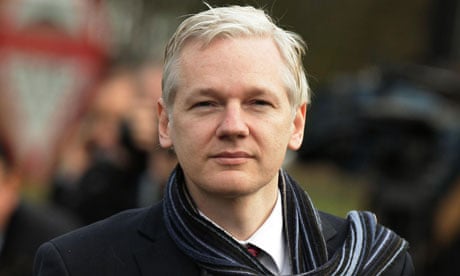Yesterday, media lawyer and legal blogger David Allen Green published the full text of the gagging order signed by almost all WikiLeaks employees earlier this year.
It's an extraordinary document. WikiLeaks staffers face a £12m penalty if they reveal any information about WikiLeaks' day-to-day operations, let alone any documents given to the whistleblowing organisation.
In a move reminiscent of the UK's reviled superinjunctions, even revealing the existence of the gagging order is itself a breach.
Within minutes of the publication of the gagging document, WikiLeaks supporter Asher Wolf pointed out to her followers that I, during my time with the organisation, had refused to sign the document. Others quickly pointed out the leaked document was unsigned.
Yes, it was my copy of the agreement that was published.
The leak was hardly premeditated though – it emerged through the refusal of transparency campaigner Heather Brooke to believe I was not joking when discussing the terms of the WikiLeaks contract.
Inadvertently, I sent her a photograph of a portion of the document publicly rather than privately, over Twitter. Needless to say, this provoked a lot of interest, and one thing then led to another.
But this document deserves to be in the public domain. Having worked for several media organisations, both print and broadcast, I'm used to confidentiality provisions.
The WikiLeaks document is by orders of magnitude the most restrictive I have ever encountered. Legal experts consulted about the document agree.
Perhaps it's useful to give the circumstances around the demands to sign. It was January this year, and around 10 WikiLeaks staff and volunteers were working from Norfolk, where Julian Assange is confined thanks to his legal travails.
Julian arrived with a copy of this document for everyone in the room, and asked all to sign it there and then, to demonstrate to all present they were trustworthy and decent. Unlike everyone else present – who were largely young activists with little or no professional training – I read the document first.
In addition to the aforementioned concerns, the document was backdated – in my case by seven months. I had given dozens of print and TV interviews, at Julian's instruction, often covering small behind-the-scenes snippets. Could this document now be used retrospectively to mount a legal challenge should Julian ever so wish? It could.
I refused to sign, and listed several reasons why. At this point, more than one person in the room asked for their copy of the agreement back. This was refused.
Julian then proceeded to spend two hours – shouting – explaining why I must sign the document, or else risk the lives and wellbeing of everyone in the room, and never be trusted again. Eventually, he departed.
The rest of the day, and long into the night, was spent with other WikiLeakers begging, reasoning, or cajoling me into signing the document. I later learned Julian had specifically requested they use every possible effort to "apply psychological pressure" until I signed.
Next morning the conversation resumed in private. In far more measured terms than the previous day, Julian acknowledged no one but him was in any personal danger. He said as I had already given notice I'd be leaving the organisation, surely I could understand that WikiLeaks would need "something to use against you" should I prove unreliable. At one point, getting nowhere, he even referred to the need to protect his intellectual rights in case it damage the profitability of his book.
Refusing to sign the document was, in large part, thanks to the healthy instinct of self-preservation. But there are much larger issues at stake. The existence of gagging agreements and clauses is one of the biggest challenges to public interest whistleblowing.
The use of compromise agreements and similar in the NHS to stifle whistleblowing has been reported more than once, and experts have warned it could lead to preventable patient deaths. And it goes without saying that when Hillary Clinton's words on why the internet should go uncensored were widely ridiculed online when compared with the US clampdown – and harsh treatment – of WikiLeaks' alleged star whistleblower Bradley Manning.
Julian Assange champions the view that only whistleblowing can truly hold an organisation accountable – that the only way to be sure nothing is being hidden is to know that those with an objection of conscience are able to speak out if they so wish. This was his argument at the recent Frontline Club debate on the topic. WikiLeaks is an organisation with the potential to do enormous good. It can also do enormous harm – if redaction is not done carefully enough, if its systems are not as robust as it says, or if it is careless about who gets hold of its information. Many have already expressed concern about these to differing degrees. Others have rightly expressed concerns about the engagement of Israel Shamir, a known antisemite who has spoken in defence of the dictator of Belarus and who was alleged to have passed WikiLeaks material to that country's government.
WikiLeaks is not democratically accountable. Julian's argument that it is accountable because it is funded by donations could just as equally be made of KKK, or the BNP. It has no board, or no oversight. If any organisation in the world relies on whistleblowers to keep it honest, it is WikiLeaks.
In such circumstances, silencing dissent is not just ironic, it's dangerous. WikiLeaks needs to get out of the gagging game.

